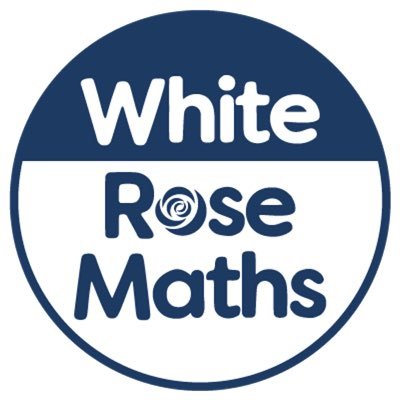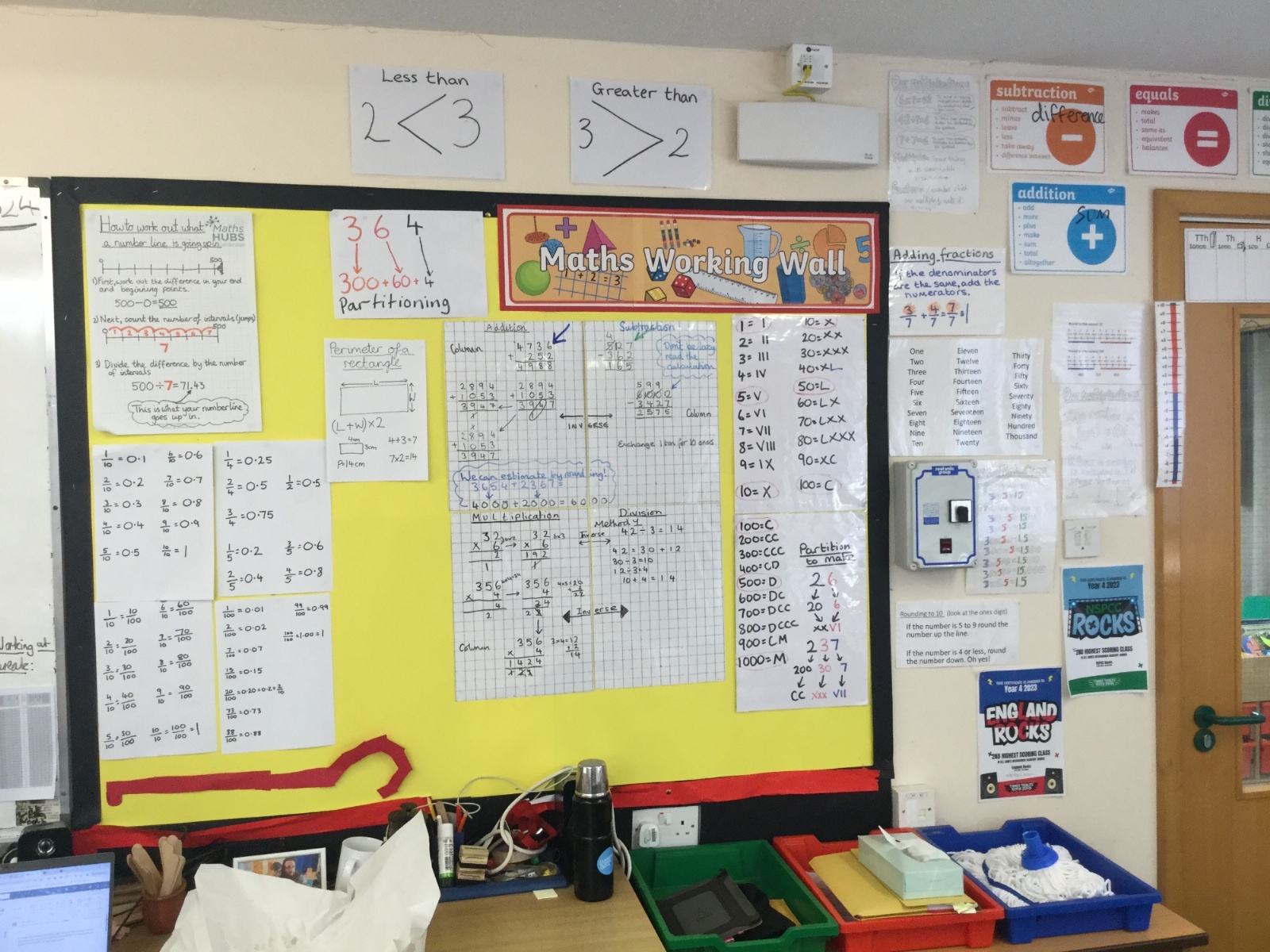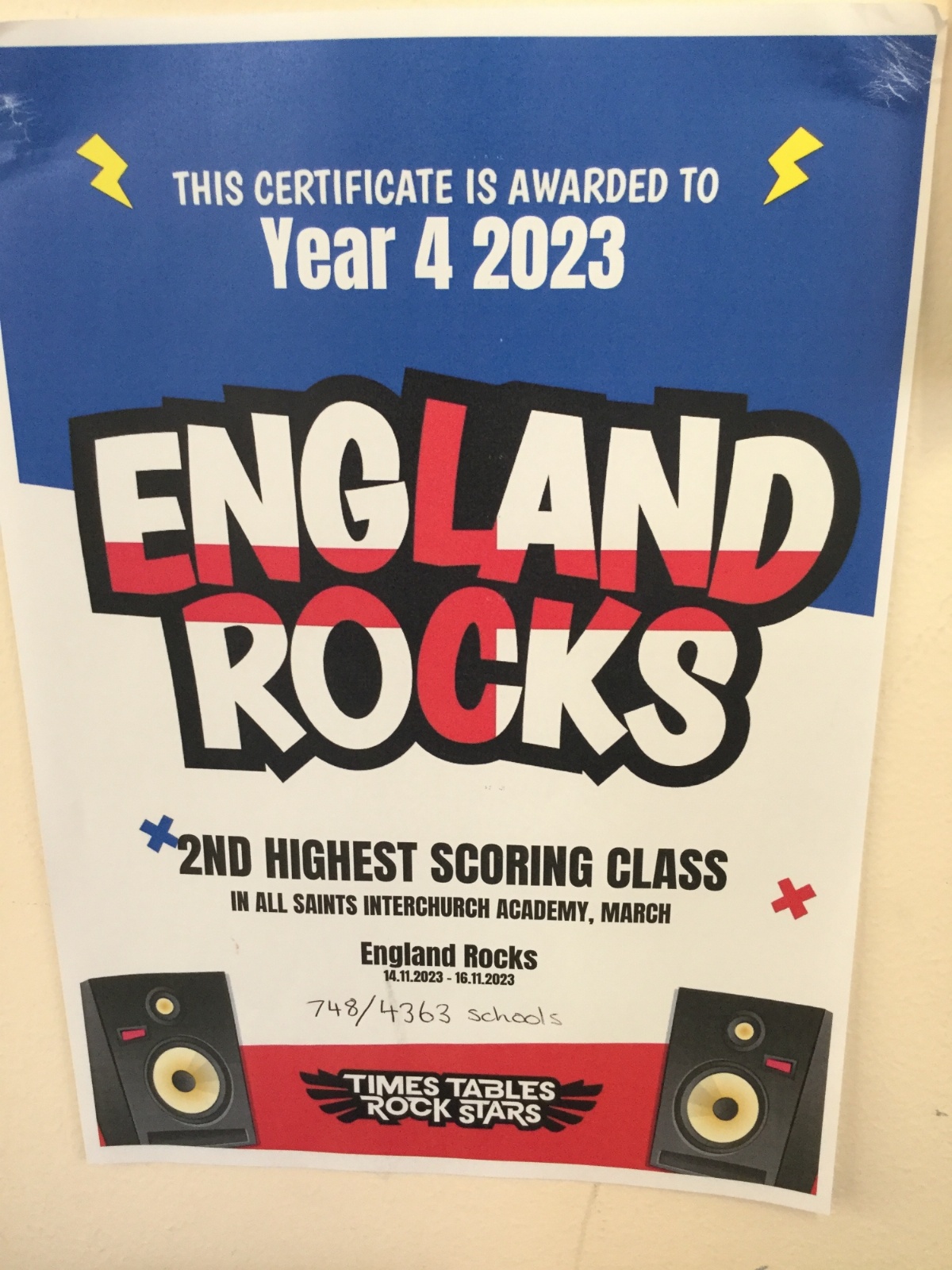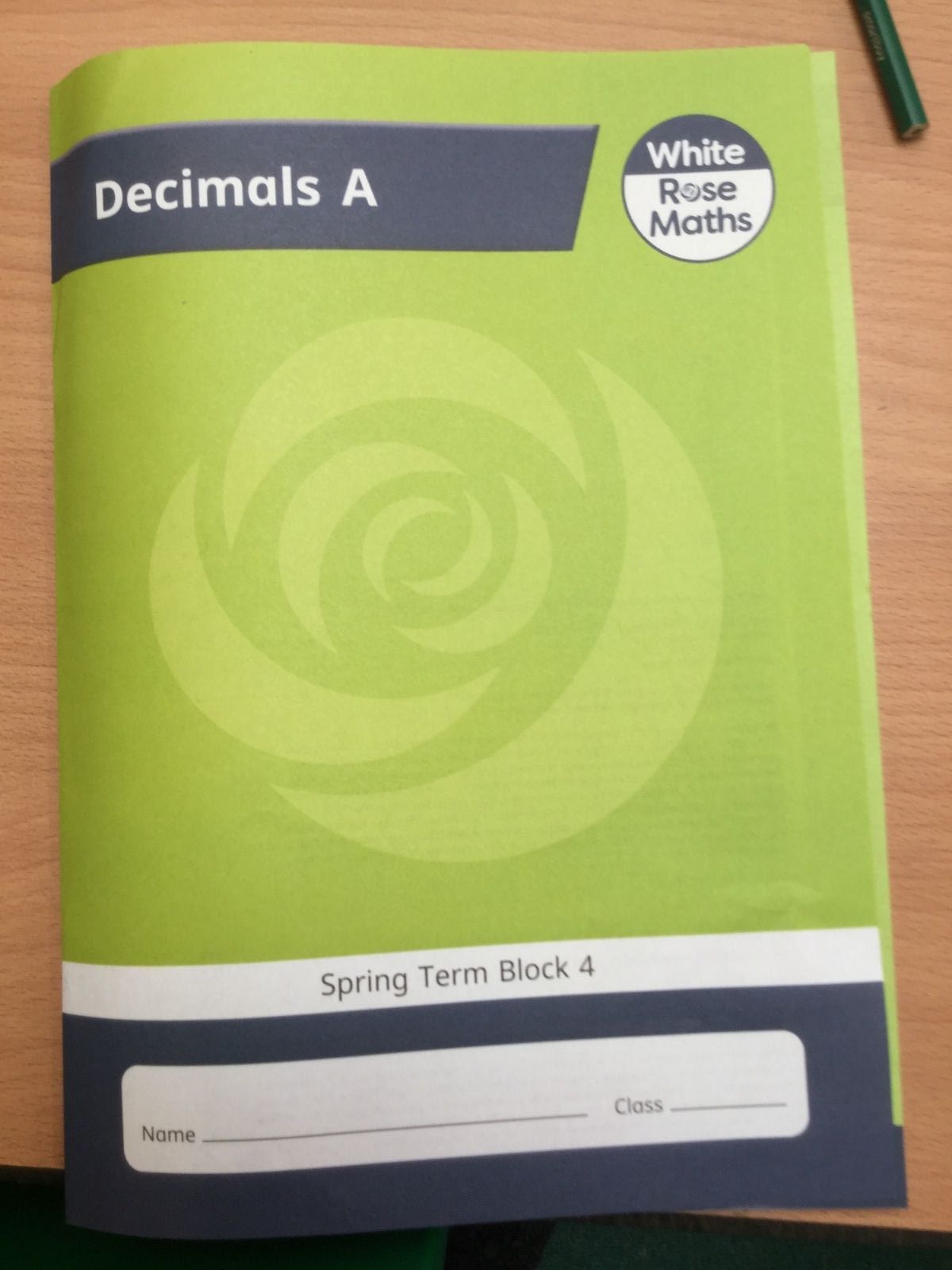Maths
Mathematics Subject Leader: Mr L Crickwood
All staff members at All Saints Interchurch Academy, are committed to ensuring that all our pupils are successful in the three core areas of the Maths National Curriculum: fluency, reasoning and problem-solving. We know that all pupils need a strong foundation in maths' skills to be able to access the learning at primary school and as they move on to secondary school and further education.
To ensure consistency and progression, the school uses the nationally recognised White Rose Maths scheme (version 3.0 - fully aligned to the National Curriculum). The White Rose curriculum is a cumulative curriculum, so that once a topic is covered, it is met many times again in other contexts. For example, place value is revisited in addition and subtraction and multiplication and division. We place firm emphasis on understanding number. We believe that a focus on mental processing ensures pupils are able to access increasingly challenging mathematical learning as they progress through our school.
Our curriculum aims to nurture a confidence in maths and equip them with the skills they need to achieve. We aim to help them become confident in their conceptual understanding and use of maths, so that they have the self-belief, determination and mindset to succeed when presented with any challenge.
We also enable children to recognise how maths relates to the wider world in order to give the subject meaning and relevance, so that they can use their mathematical skills and knowledge in real-life situations.
We follow the teaching sequence outlined by the White Rose Maths Hub scheme of learning v3.0. This ensures that a coherent, consistent approach is implemented at all stages (See progression map in Key Documents). White Rose provides teachers with notes and guidance on how to enhance their teaching of the subject along with key vocabulary, questions, discussion and teaching points. The White Rose Maths Hub schemes of learning reflect the content of the Foundation Stage Early Learning Goals and the National Curriculum for Maths.
In EYFS, we prioritise building a secure number sense and a deep understanding of numbers to 10. This in-depth knowledge of number will support children as they move onto early calculation strategies.
In KS1, the children build upon the number sense they have developed in EYFS – progressively applying this to mental calculation strategies.
In KS2, children continue to progress through the curriculum. There is a focus on formal written methods and the application of these skills to mathematical problems.
The curriculum is broken down into small manageable steps in order to ensure that each lesson has a clear focus and helps children understand concepts by following a carefully planned sequence of lessons. This avoids the cognitive overload that can occur when too many concepts are covered at once and ensures that each lesson contributes to the long-term goal. Within each lesson, children have the opportunity to acquire, practise, apply and deepen their knowledge and skills as appropriate.
Pupils who understand concepts quickly are challenged by being offered problem-solving activities to deepen their understanding. Concepts are revisited over time, so that children can reinforce them and embed them into their long-term memory. Teachers have the flexibility to spend longer on specific skills or concepts if they feel it is necessary.
When introduced to a new concept, children have the opportunity to develop their understanding in a variety of ways. Concrete objects and manipulatives can be used to help with understanding. Alongside these, children use pictorial representations that can be used to help reason and solve problems. Concrete and pictorial representations then help support children’s understanding of abstract methods.
In whole class lessons, teachers and TA’s provide scaffolding, adaptive teaching and relevant support for pupils as necessary. Children who are not making expected progress are identified through a range of methods including but not exclusively; verbal responses in class, evidence in books and cold and hot assessments. This can be daily, at the end of units or the end of the term. Subsequently, intervention sessions can then be put in place to support these children.
Classrooms are equipped with working walls to aid in maths lessons. The content of the working walls is flexible and contains key vocabulary, concepts and knowledge as well as the current class learning.
Regular and ongoing formative assessment informs day-to-day teaching and learning and the necessary support to enable all pupils to make progress. Pre-test B ‘cold assessments’ from the previous year are completed before the start of each block. Pre-learning tasks are a useful method to identify gaps in knowledge and understanding. Post-test A in the current year, demonstrates pupils' understanding of the unit, progress and attainment within that year.
Each term, teachers complete a summative assessment, using the White Rose termly tests; these tests give a benchmark which enables teachers to see progress within each cycle of McKie and year-on-year.
In-school moderation of learning is conducted by the maths subject leader and by the senior leadership team with staff through book looks. Moderation will also be on a combination of learning walks; book looks and pupil voice.





